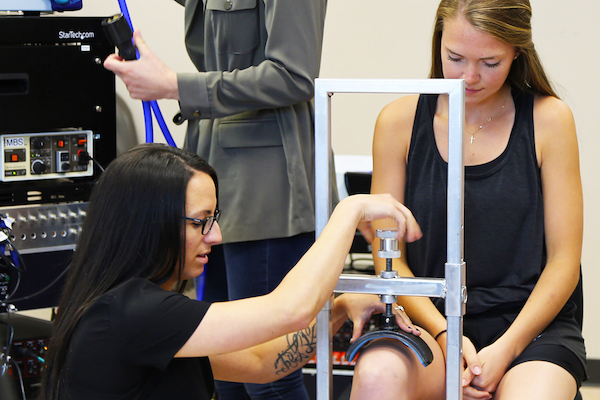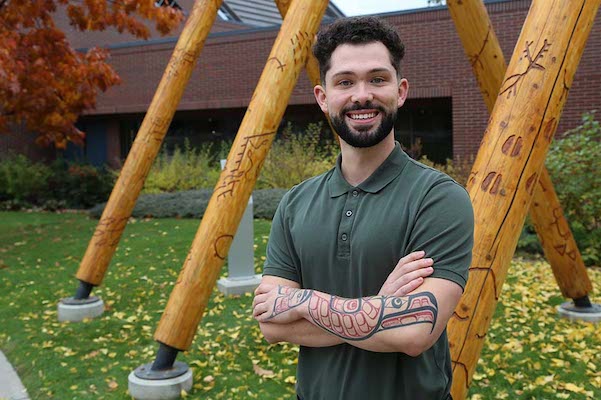
Do you want to work with people to enhance their wellbeing and help them lead healthier and more active lives?
In the Bachelor of Health and Exercise Sciences at UBC’s Okanagan campus you can study human movement and its impact on health.
What will you learn?
In the Bachelor of Health and Exercise Sciences you’ll examine the interdisciplinary nature of human health, including the psychological, physiological, neuromechanical, and socio-cultural aspects of movement.
In your second year, you’ll have the option to apply for one of three concentrations: Kinesiology and Allied Health, Health Behaviour Change, or Clinical Exercise Physiology. Each concentration offers a strategic career focus to best prepare you to be a leader in your field.
Student Scoop
Read Austin Basso’s story of promoting health initiatives for urban and rural Indigenous communities as a student in the Health and Exercise Sciences program.
Why Choose Health and Exercise Sciences?
1. Study in a program that ranks #1 in Canada and #3 in the world for sport-related subjects. This is in combination with the Faculty of Kinesiology at UBC Vancouver.
2. Focus your degree in one of three concentrations:
- Kinesiology and Allied Health. The Kinesiology Allied Health concentration focuses on the role of exercise and physical activity in improving health, fitness and performance as well as the prevention and rehabilitation of injuries.
- Health Behaviour Change. The Health Behaviour Change concentration involves studying behaviour change theory and techniques to help individuals and communities adopt and adhere to a number of health behaviours. This concentration focuses on the role of nutrition, exercise programs, and informal activity in population health promotion.
- Clinical Exercise Physiology. The Clinical Exercise Physiology concentration focuses on incorporating exercise, activity education, and clinical skills into human performance, patient rehabilitation and chronic disease management programs. The program focuses on the study of applied physiology and how exercise, movement, and fitness intersect with health, disease, fatigue, and disability.
3. Research opportunities. Research opportunities are a fundamental part of your studies within the School of Health and Exercise Sciences and there are opportunities to work alongside faculty members to conduct research. You can also take on an Honours Project to perform research in your chosen area of study, as agreed upon by a faculty member.
4. Experiential Learning. The Health and Exercise Sciences degree builds a solid foundation through skill-building labs, practicums, and co-op placements. Within each concentration you will complete a community practicum, where you’ll gain experience in a supervised health-related work setting with a cooperating agency, private business, or industry.
What can you do after graduating?
As a graduate of this program, you will be an adaptable leader who has the ability to work with various populations to enhance their health and wellbeing. Your job opportunities could include becoming a nutritionist, health educator, exercise therapist, clinical exercise physiologist, or kinesiologist. You can also pursue graduate studies in a variety of health professions, such as physiotherapy, occupational therapy, athletic therapy, or medical school.
